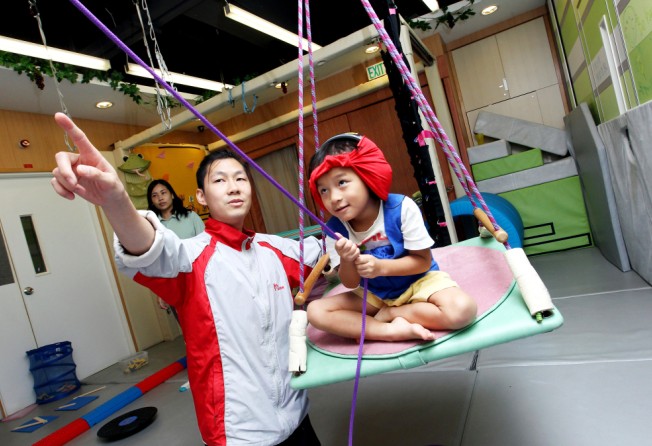Hong Kong must do more for students with special needs
Raymond Tang says our school system is failing students with learning difficulties, particularly when up to half of them may go undiagnosed

Success stories of students with special education needs in Diploma of Secondary Education exams may get much media attention, but they are isolated incidents. In reality, many of them either receive limited support for their learning problems or their difficulties go unrecognised.
Only when students with special education needs are properly diagnosed can remedial help be given. Unfortunately, this is not often the case.
For example, one 2007 study found that around 11 per cent of children had specific learning difficulties, with about 4 per cent classified as moderate to severe cases.
However, in a discussion paper submitted by the Education Bureau to the Legislative Council for integrated education review meetings earlier this year, only about 2 per cent of primary and secondary school pupils were found to have specific learning difficulties. This suggests at least half of children with these learning difficulties are being overlooked and are receiving no learning support at all.
The discrepancy is very likely the result of a shortage of provision for diagnosis. Assessment in private clinics can be very expensive. Those who cannot afford it have to wait months, sometimes years, before an evaluation can finally be arranged in a government centre.
In the university sector, only 0.01 per cent of students are reported to have specific learning difficulties. Besides the problem of under-diagnosis, this absurdly low figure might also reflect that the entry barrier to tertiary education is set so high that only a handful of students with specific learning difficulties are able to make it. Again, a lack of support is one possible reason.
Hong Kong's Disability Discrimination Ordinance states that it "seeks to ensure that persons with disabilities have equal opportunities in access to, and meaningful participation in, local education". It also says that denying or limiting their access to services and benefits is unlawful. Yet the ordinance's extensive exclusions concerning the responsibility of the education establishment may well limit the effect of the statute.
Considering the dire consequences of inadequate support on the future of a student with special needs, should more be done?
A landmark case in Britain held that a claim could be brought for educational negligence against a psychologist and local authority over a pupil's academic failure after they failed to diagnose that she was dyslexic (sometimes a synonym for special learning difficulties). As a result, suitable learning support was not provided.
The House of Lords, while acknowledging the professionalism and dedication of the teaching profession, also pointed out "the fact that some claims may be without foundation or exaggerated does not mean that valid claims should necessarily be excluded".
The exemptions provided to educational establishments in our Disability Discrimination Ordinance are far too wide. Before a major review is done in this area of legislation, undiagnosed and unsupported special needs students might have only the tort of educational negligence to rely on.
Raymond Tang is a barrister who has practised as an educational psychologist for 20 years